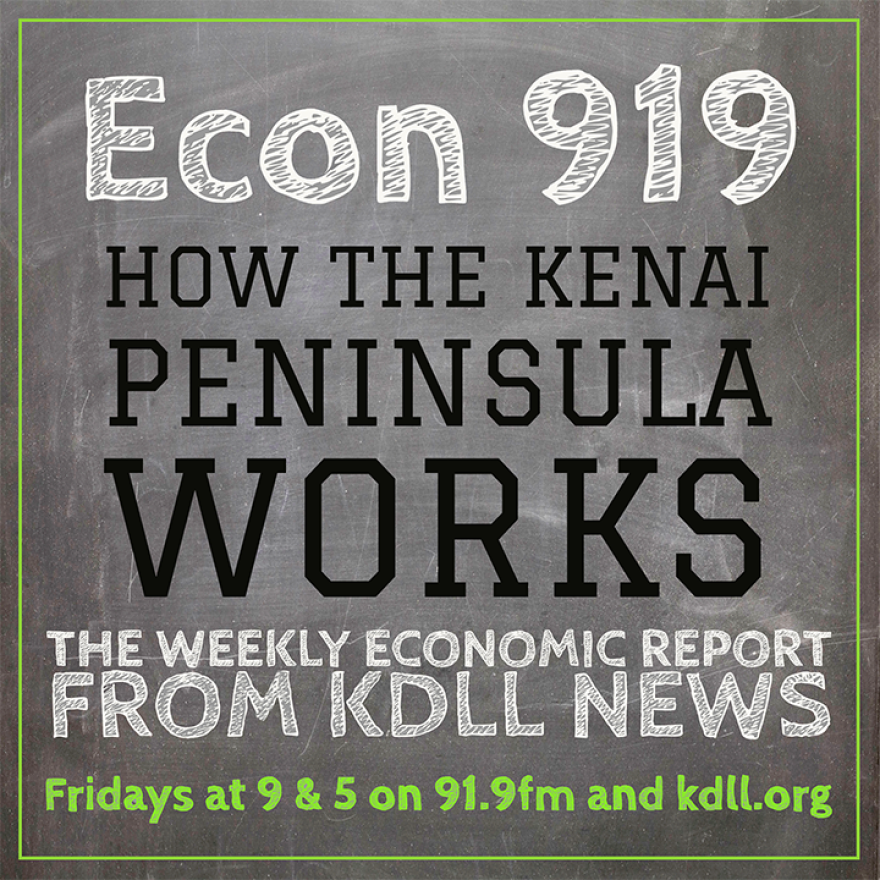Alaska fisheries more than three miles offshore fall under the purview of the North Pacific Fishery Management Council, a group of 11 voting members that makes policy decisions about the federal fisheries off the Alaska coast.
One of those council members is Seward’s Andy Mezirow. He was just appointed to his third three-year term by Gov. Mike Dunelavy. It’ll be his last, due to term limits.
“It’s a really interesting position," he said. "I advocate for people who are directly involved in the fishery to participate in this decision making. And so for a common man like myself from Seward, Alaska, to be able to directly control how the levers of government are managing fisheries is a huge honor and responsibility and it has not been lost on me in the last six years on the council.”
Mezirow is one of six members from Alaska. The other members come from Washington and Oregon, since those states also have stake in Alaska’s fisheries.
He’s also the only active fisherman on the council and the sole member from the Kenai Peninsula. Mezirow owns Gray Light charters in Seward.
He got involved with the council in 1995 when he was applying for a charter permit for his then-new business.
“And I got a letter back saying I might not be able to participate because of a control they had established by this North Pacific Fishery Management Council," he said. "So I figured, I should probably learn what this council does and how it works to make sure I can go into business.”
He was also drawn to the legal and philosophical issues councilmembers have to debate. He said serving on the council has been tough and rewarding.
“If you do this job serving on the council and you don’t lose sleep over it, you don’t feel queasy in your stomach when you have to make some of these decisions, you’re not the right person for doing it," he said.
He remembered one hard call from 2016, when the council tabled a plan to rationalize the groundfish fishery in the Gulf of Alaska, a plan that would have reduced the amount of halibut and salmon caught in trawling bycatch.
“And we just had an overwhelming display of support for moving forward with that, where they had a parade or processor workers that they had and hundreds of people testifying and they were sort of pleading for this rationalization program to help them participate in their fisheries," he said. "And ultimately we chose not to go down that path. And that was a particularly difficult one.”
Sometimes, those calls hit close to home. In December, the council followed the state’s recommendation to close the federal waters of Upper Cook Inlet to commercial salmon fishing, rather than have the state manage the resource alongside the federal government.
Commercial fishermen said that decision will have grave consequences for the fishermen and processors who make their livelihoods there.
But council members, including Mezirow, said they didn’t have another option.
“We just couldn’t do it legally," he said. "The state wouldn’t relinquish control of that fishery to the federal government. And once that became the position, we could not keep that area open.”
He said he’s hopeful there will be a legislative workaround in the future that could allow the fishery to reopen. The Magnuson-Stevens Act sets the rules for fishery management in federal waters.
“In my own mind, I’m hopeful that fishermen in Cook Inlet aren’t going to really end up getting put out of business," he said. "But hopefully the law will change and we’ll be able to fix this.”
Currently, council members are considering a plan to develop a rationalization program for Pacific cod in the Bering Sea, since cod fishermen there are experiencing shorter seasons and decreasing stocks.
At its October meeting, set to be held in person, the council will review its halibut catch sharing plan. It’s something that comes up every few years and Mezirow said he’s hoping to iron out some of the procedural pitfalls in the current plan.
“Essentially now, we don’t know what the management measures are going to be until January of the existing charter season," he said. "So between September and January, any bookings we take might be subject to day-of-the-week closures, where people book a halibut charter and then that day is closed. And so we have to circle back with clients and tell them they can’t go fishing for halibut on specific days that they book.”
As part of that review, they’ll also look at how halibut is allocated between charters and longline fishermen. The last time the council looked at the resource, in 2014, it had a rosier outlook about how the resource would develop overtime.
Separately, the council voted last year to reduce some of the management requirements on the charter fleet in that fishery to make halibut charters more appealing to in-state tourists, amid the pandemic.
“And we did that, and it actually worked," he said. "It was amazing. Our business went from 20, 25 percent Alaska residents to 75 percent in one year because we liberalized the bag limits and made it attractive for them to come.”
Those requirements are again loosened this year.
Mezirow’s appointment is awaiting the greenlight from the Secretary of Commerce. Meantime, he’s got a Seward fishing season to prep for.
“I think it’s going to be a better season, a less stressful season because of everyone involved because of the vaccine," he said.
He's already been vaccinated, so he won’t have to worry as much about balancing his own health risks with his business.
The council next meets between April 12 and 17.






